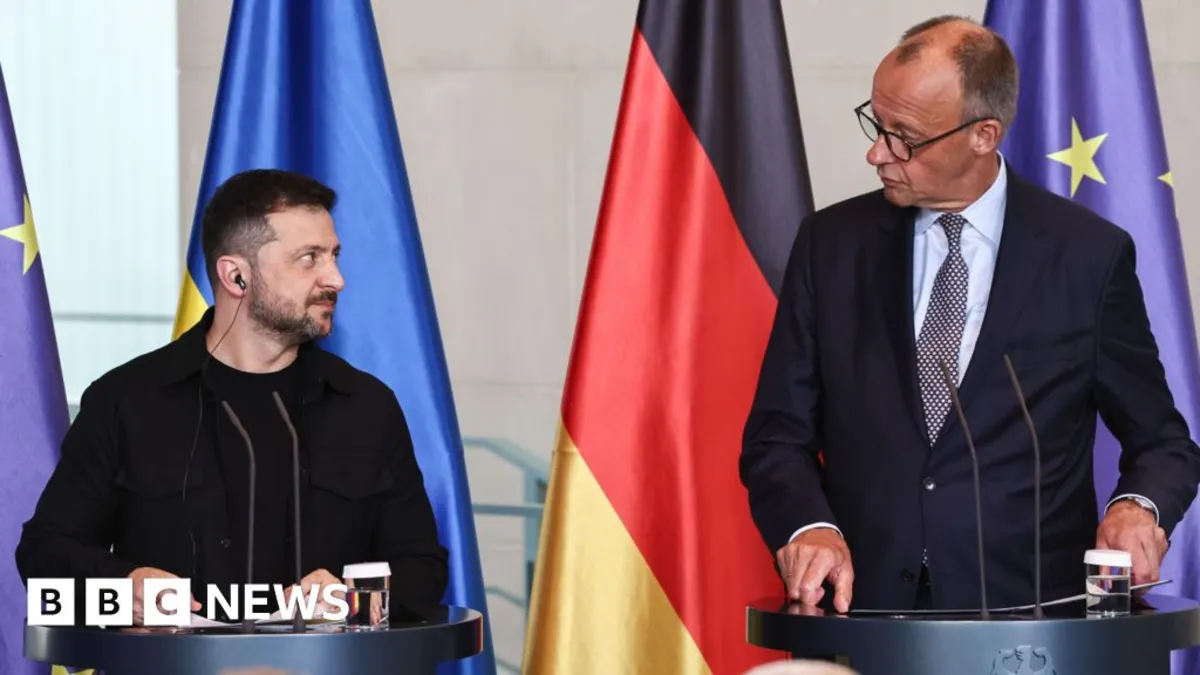
European leaders emerged with a sense of cautious optimism after participating in a virtual meeting with Donald Trump on Wednesday. This meeting took place just two days before Trump is scheduled to meet with Russian President Vladimir Putin in Alaska, where they are expected to discuss strategies for ending the ongoing war in Ukraine.
During the conversation, Trump reportedly outlined his primary goal for the upcoming summit: to achieve a ceasefire between Moscow and Kyiv. He emphasized that any territorial disputes must be resolved with the direct involvement of Ukrainian President Volodymyr Zelensky and that security guarantees should be an integral part of any agreement. French President Emmanuel Macron highlighted that this dialogue clarified Trump's intentions and provided European leaders an opportunity to communicate their expectations effectively.
The virtual meeting included not only Trump but also Vice-President JD Vance and leaders from the UK, France, Germany, Italy, Finland, and Poland, along with EU Chief Ursula von der Leyen and NATO Chief Mark Rutte. The Europeans felt sidelined from the hastily arranged summit in Alaska, making this phone call a crucial last-ditch effort to ensure that Ukraine's interests and the continent's security remain at the forefront of Trump's agenda.
By Wednesday evening, Trump rated the meeting a perfect ten, asserting that Russia would face severe consequences unless it ceased its military actions in Ukraine. He also indicated that if the upcoming meeting went well, he would attempt to organize a follow-up session involving both Putin and Zelensky. Despite this apparent enthusiasm, European leaders reiterated the necessity of Kyiv's involvement in any final decision, revealing a deep-seated concern that Putin might persuade Trump to concede Ukrainian territory in exchange for a ceasefire.
Poland's Donald Tusk emphasized the critical need for Europe to convince Trump that Russia cannot be trusted. Meanwhile, German Chancellor Friedrich Merz insisted that leaders had made it clear that Ukraine must be included in any follow-up discussions. He stressed that if the Russian side remains uncompromising, both the United States and European nations should increase pressure on Moscow.
Since the announcement of the US-Russia summit last week, Trump has made several comments regarding potential land-swapping between Kyiv and Moscow, raising alarm in Ukraine and beyond. This has led to fears that Trump may be considering giving in to Putin's longstanding demands for large portions of Ukrainian territory. On Wednesday, Russian Foreign Ministry spokesperson Alexey Fadeev reiterated that Russia's position has not changed since Putin's statements in June 2024, which included maximalist demands that Kyiv and its European allies deem unviable.
Ukrainian President Zelensky has expressed skepticism, stating that any territory retained by Russia could serve as a launch point for future invasions. One potential countermeasure to this threat could be security guarantees aimed at ensuring Ukraine's long-term defense. Following the phone call with Trump, several European leaders mentioned the importance of these guarantees, with UK Prime Minister Keir Starmer noting that real progress had been made in this regard. He praised Trump's efforts, stating that the conflict has persisted for over three years without a viable solution until now.
Since spring, the UK and France have been at the forefront of establishing a Coalition of the Willing, a collective of nations committed to deterring further Russian aggression in Ukraine. On Wednesday, this group affirmed its readiness to play an active role, including the potential deployment of a reassurance force once hostilities cease. However, the specifics regarding the composition and role of such a force remain unclear.
As the world awaits the outcome of the Trump-Putin meeting in Alaska, the focus remains on finding a sustainable resolution to the conflict in Ukraine, with European leaders advocating for a strategy that prioritizes Ukraine's sovereignty and security.